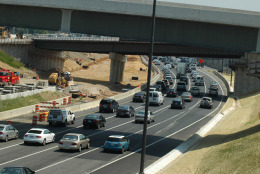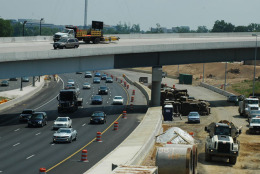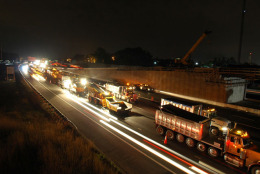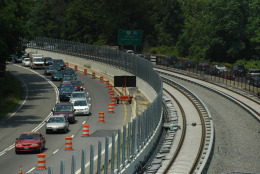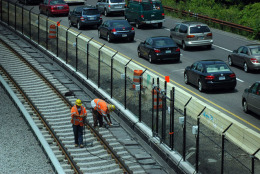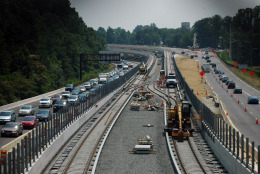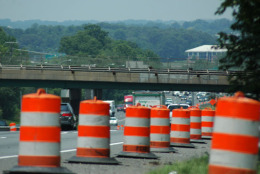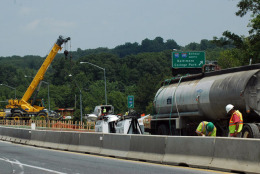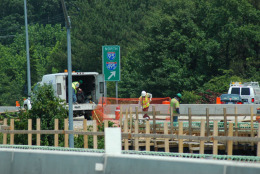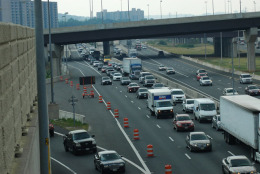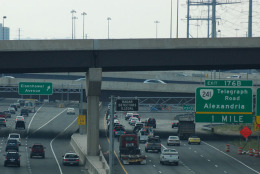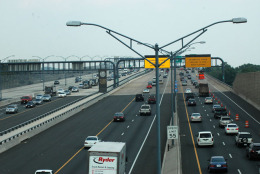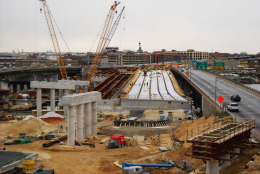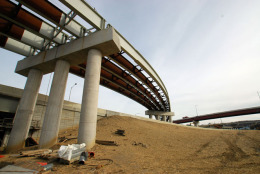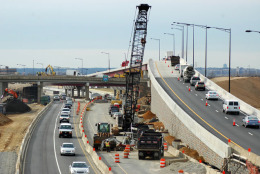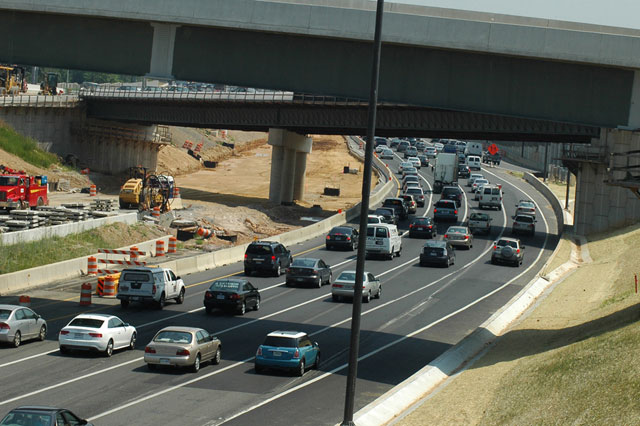
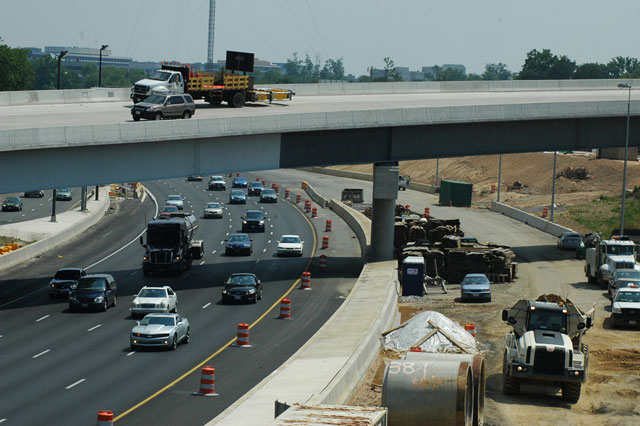
It is on schedule to wrap up by December this year. In the meantime, motorists can expect continuing delays during off-peak hours. The biggest delays occur in the stretch of the Capital Beltway between Tysons Corner and Annandale most weeknights. (WTOP/Dave Dildine)
WTOP/Dave Dildine
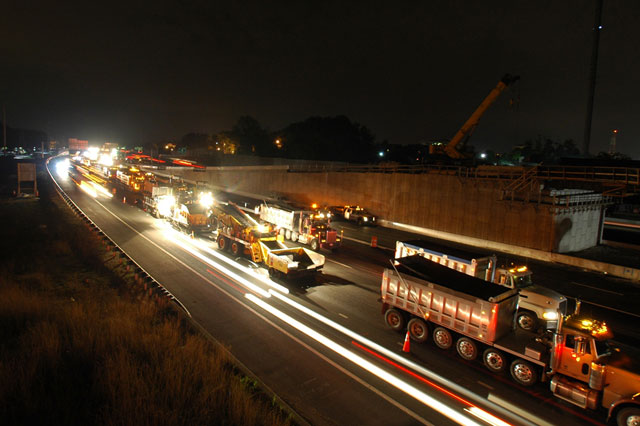
Severe nighttime delays occur as lanes begin to close after 10 p.m. Traffic is usually worst in the hour or two after cones have been set up and when nighttime volume is highest. After midnight, it is not uncommon for temporary stoppages of traffic to occur as crews shift equipment and supplies around. (WTOP/Dave Dildine)
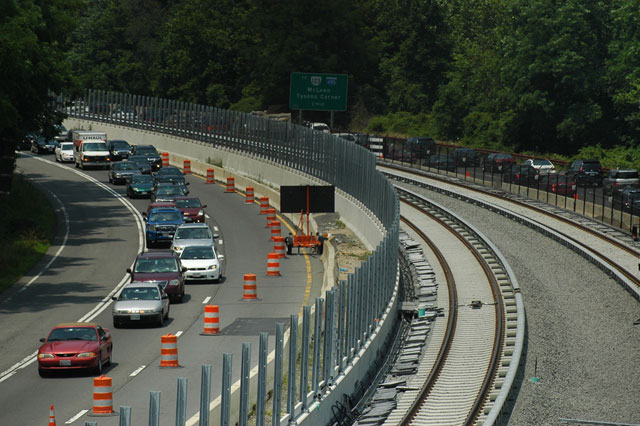
Construction in the median of the Dulles Connector Road between Interstate 66 and VA 123 has blocked the left lanes each way most weekdays around noontime for several months. Delays are particularly intense in the eastbound direction when the track work takes place. (WTOP/Dave Dildine)
WTOP/Dave Dildine
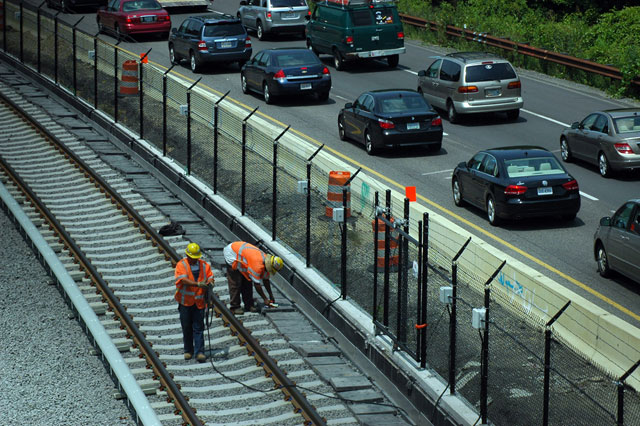
The installation of caissons and piers is nearing completion along this segment of the Dulles rail line. Pictured here, electrical work takes place upstream of a lane closure on the Dulles Connector Road. (WTOP/Dave Dildine)
WTOP/Dave Dildine
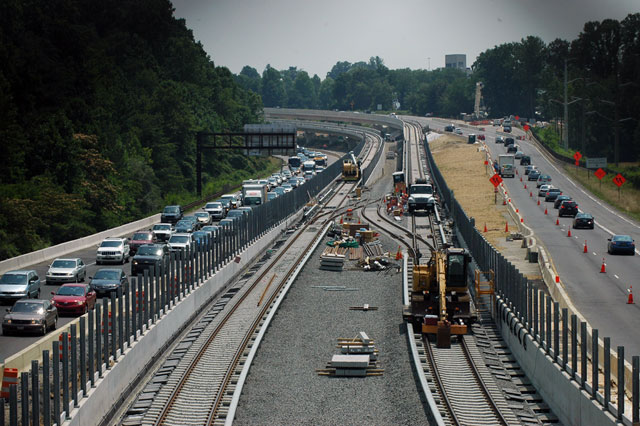
On most primary roads, including the Dulles Connector Road, midday construction can cause delay. Unlike most regional construction projects, the track work along VA-267 seems to be unhindered by weather. This work zone normally sets up rain or shine. (WTOP/Dave Dildine)
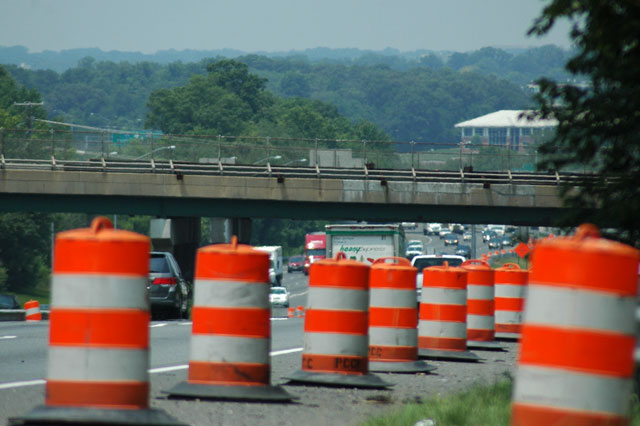
The humble appearance of the project over the Capital Beltway may seem harmless by day, but at night major backups result from lane closures on Interstate 495. (WTOP/Dave Dildine)
WTOP/Dave Dildine
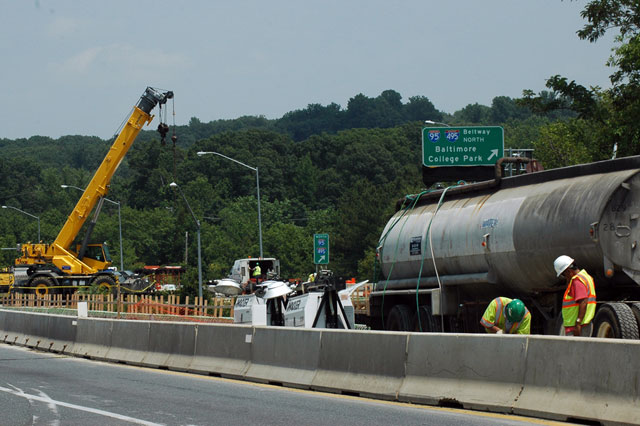
Late last week, crews finished pouring cement for the new northbound Kenilworth Avenue bridge span. The Maryland State Highway Administration says going forward, significant lane closures on the Beltway will become less likely. (WTOP/Dave Dildine)
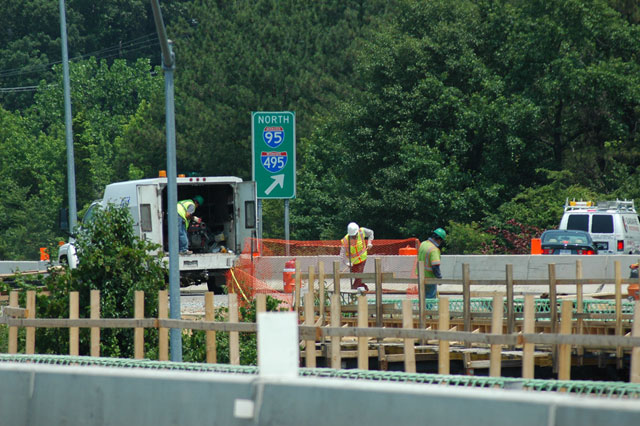
The total cost of reconstruction is estimated at $4.9 million. The project is expected to be completed by fall this year. (WTOP/Dave Dildine)
WTOP/Dave Dildine
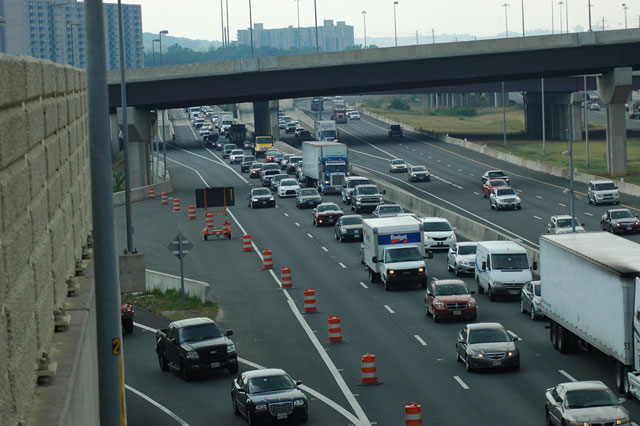
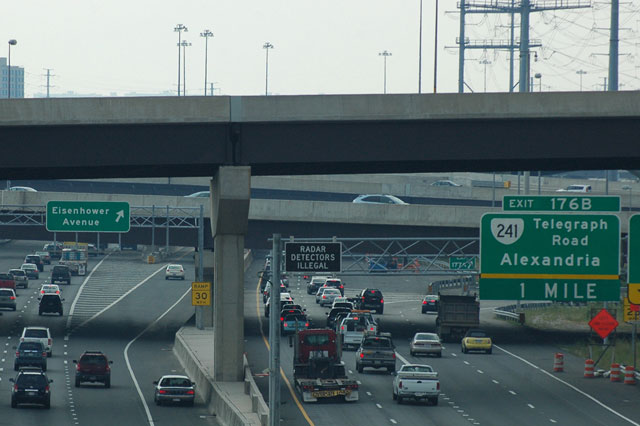
The rebuilding of the Telegraph Road Interchange is the last leg of the Woodrow Wilson Bridge Improvement Project. The construction is expected to be completed in 2013. (WTOP/Dave Dildine)
WTOP/Dave Dildine
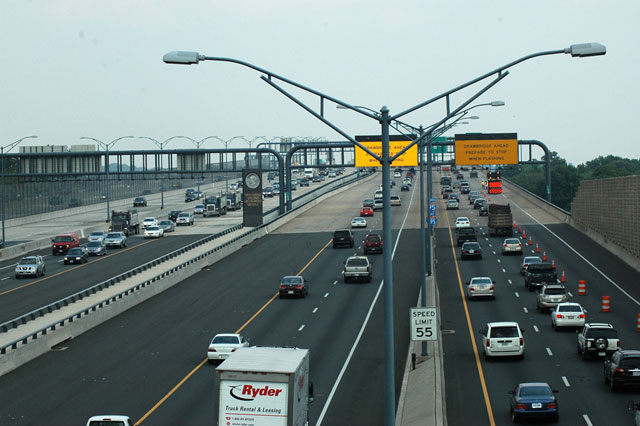
The final phase of the Woodrow Wilson Bridge Improvement Project, with an estimated price tag of $236 million, will extend the Thru/Local Lanes configuration to west of Eisenhower Avenue. (WTOP/Dave Dildine)
WTOP/Dave Dildine
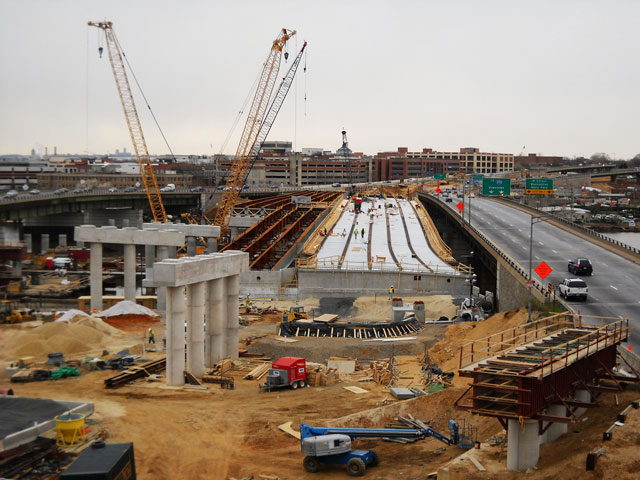
The largest construction undertaking ever attempted by the District Department of Transportation, the 11th Street Bridge Project in Southeast Washington is well under way. (Courtesy of D.C. Department of Transportation)
Courtesy of D.C. Department of Transportation
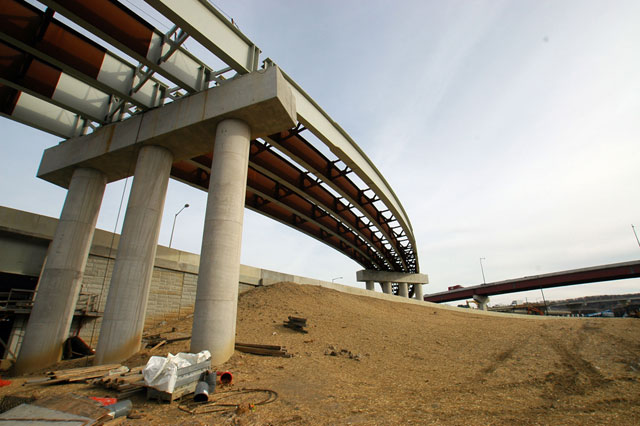
The new, highly anticipated connection between the outbound 11th Street Bridge and northbound D.C. 295 will provide an additional option for outbound motorists during the afternoon commute. (WTOP/Dave Dildine)
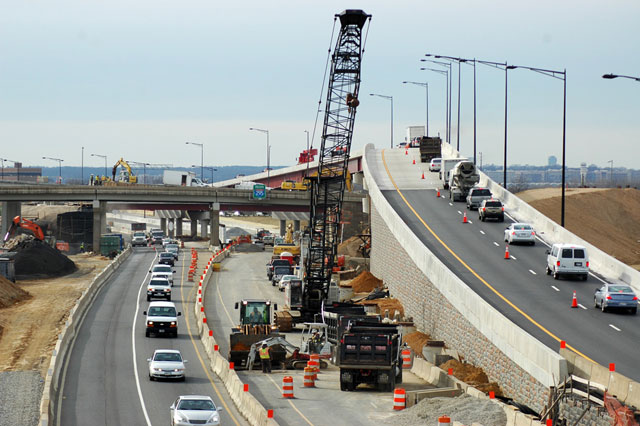
Pictured here, the 11th Street Bridge at D.C. 295 is seen earlier this year. Crews have been busy demolishing the old overpass from 13th Street SE. This demolition work necessitates single-lane closures on D.C. 295 during the day and full northbound closures at night. Backups are an inevitable result of this work. (WTOP/Dave Dildine)
WTOP/Dave Dildine
